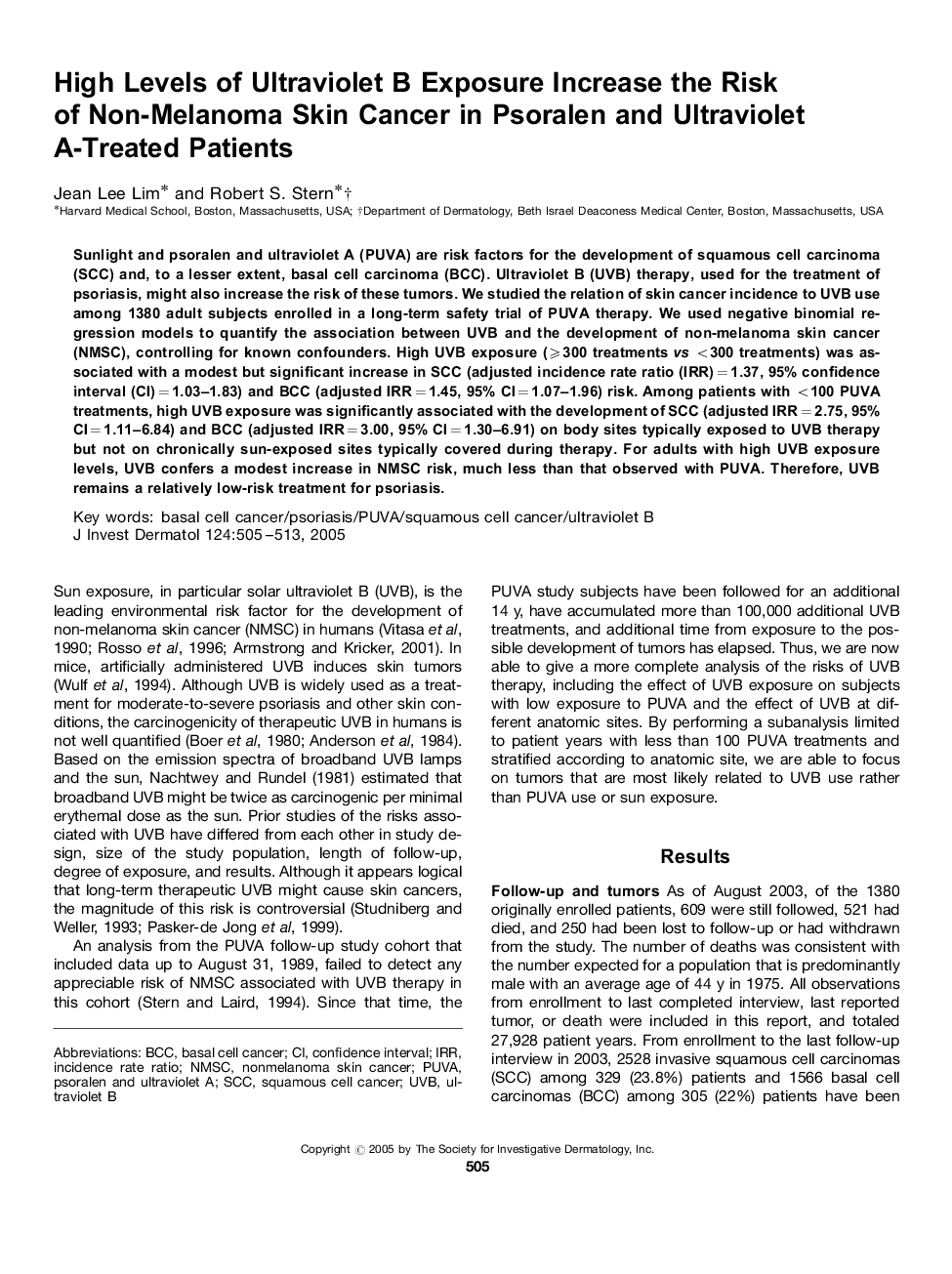| کد مقاله | کد نشریه | سال انتشار | مقاله انگلیسی | نسخه تمام متن |
|---|---|---|---|---|
| 9230305 | 1203625 | 2005 | 9 صفحه PDF | دانلود رایگان |
عنوان انگلیسی مقاله ISI
High Levels of Ultraviolet B Exposure Increase the Risk of Non-Melanoma Skin Cancer in Psoralen and Ultraviolet A-Treated Patients
دانلود مقاله + سفارش ترجمه
دانلود مقاله ISI انگلیسی
رایگان برای ایرانیان
کلمات کلیدی
موضوعات مرتبط
علوم پزشکی و سلامت
پزشکی و دندانپزشکی
امراض پوستی
پیش نمایش صفحه اول مقاله

چکیده انگلیسی
Sunlight and psoralen and ultraviolet A (PUVA) are risk factors for the development of squamous cell carcinoma (SCC) and, to a lesser extent, basal cell carcinoma (BCC). Ultraviolet B (UVB) therapy, used for the treatment of psoriasis, might also increase the risk of these tumors. We studied the relation of skin cancer incidence to UVB use among 1380 adult subjects enrolled in a long-term safety trial of PUVA therapy. We used negative binomial regression models to quantify the association between UVB and the development of non-melanoma skin cancer (NMSC), controlling for known confounders. High UVB exposure (â¥300 treatments vs <300 treatments) was associated with a modest but significant increase in SCC (adjusted incidence rate ratio (IRR)=1.37, 95% confidence interval (CI)=1.03-1.83) and BCC (adjusted IRR=1.45, 95% CI=1.07-1.96) risk. Among patients with <100 PUVA treatments, high UVB exposure was significantly associated with the development of SCC (adjusted IRR=2.75, 95% CI=1.11-6.84) and BCC (adjusted IRR=3.00, 95% CI=1.30-6.91) on body sites typically exposed to UVB therapy but not on chronically sun-exposed sites typically covered during therapy. For adults with high UVB exposure levels, UVB confers a modest increase in NMSC risk, much less than that observed with PUVA. Therefore, UVB remains a relatively low-risk treatment for psoriasis.
ناشر
Database: Elsevier - ScienceDirect (ساینس دایرکت)
Journal: Journal of Investigative Dermatology - Volume 124, Issue 3, March 2005, Pages 505-513
Journal: Journal of Investigative Dermatology - Volume 124, Issue 3, March 2005, Pages 505-513
نویسندگان
Jean Lee Lim, Robert S. Stern,